
Transcription
Voting rights appeal asks us to forgive, and forget, history
Leonard Pitts Jr. says it would be remiss for the naivete that racism is over to influence the Supreme Court decision on civil rights provision.
One day, many years ago, I was working in my college when this guy walks in wearing a T-shirt. "White Power", it said.
I was chatting with a friend, Cathy Duncan, and what happened next was as smooth as if we had rehearsed it. All at once, she's sitting on my lap or I'm sitting on hers - I can't remember which - and that white girl gives this black guy a peck on the lips. In a loud voice she asks, "So, what time should I expect you home for dinner, honey?"
Mr. White Power glares malice and retreats. Cathy and I fall over laughing.
Which tells you something about how those of us who came of age in the first post civil rights generation tended to view racism. We saw it as something we could dissipate with a laugh, a tired old thing that had bedeviled our parents, yes, but which we were beyond. We thought racism was over. [think again :/]
I've spent much of my life since then being disabused of that naivete. Watching media empires built upon appeals to racial resentment, seeing the injustice system wield mass incarceration as a weapon against black men, bearing witness as the first African-American president produced his long-form birth certificate, all helped me understand just how silly we were to believe bigotry was done.
So a chill crawled up my spine last week as the Supreme Court heard arguments in a case that could result in gutting the Voting Rights Act. That landmark 1965 legislation gave the ballot to black voters who had previously been denied it by discriminatory laws, economic threats, violence and by registrars who challenged them with nonsense questions like, "How many bubbles are in a bar of soap?"
One of the act's key provisions covers nine mostly Southern states and scores of municipalities with histories of such behavior. They must get federal approval before changing their voting procedures. The requirement may be stigmatizing, but it is hardly onerous.
Yet Shelby County, Ala., seeks the provision's repeal, pronouncing itself cured of the attitudes that made it necessary. "The children of today's Alabama are not racist and neither is their government", wrote Alabama Attorney General Luther Strange last week.
It was rather like hearing a wife beater say he has seen the error of his ways and will no longer smack the missus around. Though you're glad and all, you still hope the wife's testimony will carry a little more weight in deciding whether the restraining order should be lifted.
But the court's conservatives seemed eager to believe, peppering the law's defenders with skeptical questions. Indeed, Justice Antonin Scalia branded the law a "racial entitlement".
Sit with that a moment. A law protecting the voting rights of a historically disenfranchised minority is a "racial entitlement"? Equality is a government program?
Lord, have mercy.
There is historical resonance here. In the 1870s, the South assured the federal government it could behave itself without oversight. The feds agreed to leave the region alone where race was concerned. [whaat!] The result, nearly a century of Jim Crow. Now here comes Shelby County, saying in effect: We've changed. Trust us. [Bullshit!]
It is an appeal that might have seemed persuasive back when I was young and naive and thinking race was over. But that was a long time ago.
Yes, the South has changed - largely because of the law Shelby County seeks to gut. Even so, attempts to dilute the black vote have hardly abated. We've just traded poll taxes and literacy tests for gerrymandering and voter ID laws.
So we can ill afford to be as naive as a top court conservative at the prospect of softening federal protection of African-American voting rights. "Trust us", says the South. And the whole weight of history demands a simple question in response.
Why?
Pitts' email address is lpitts@miamiherald.com.
****
Leonard Pitts Jr. says despite Sixth Amendment guarantees, it turns out that poor people's justice is to justice as monkey business is to business.
"Make me wanna holler, way they do my life." - Marvin Gaye, "Inner City Blues"
Karen Houppert has written a book of nightmares.
Houppert, a veteran reporter for, among others, the Washington Post and the New York Times, is the author of "Chasing Gideon: the Elusive Quest for Poor People's Justice", which comes out this week coincident with the anniversary of a legal milestone. It was 50 years ago Monday that the case of Gideon v. Wainwright was decided.
Clarence Earl Gideon, 51, was arrested in Panama City, Fla., in 1961 for burglary. When his case came to trial, Gideon, who was indigent, asked the court to provide him an attorney. The court refused, and Gideon, a four-time loser and eighth-grade dropout, had to represent himself. He was found guilty and given five years.
But though he was no scholar, Gideon knew something was wrong with this picture. He wrote a letter - in pencil and with a dropout's creative spelling and grammar - to the Supreme Court, which agreed to hear the case and appointed counsel to represent him. The decision it handed down affirmed the Sixth Amendment promise that every criminal defendant - even an indigent one - shall have "the Assistance of Counsel for his defense."
It is a right we take for granted now; part of the boilerplate every TV cop rattles off to every suspect. "If you desire and cannot afford an attorney..." etc.
It is hard to imagine that such was not always the case. Perhaps you're grateful to live in a country where even the humble poor are ensured of quality representation when they stand before the bar of justice.
Except that you don't. Hence, the nightmare.
It turns out there is a gulf between the 1961 promise and the 2013 reality. It turns out one lawyer can be expected to try 400, 500, 600 cases a year. It turns out public defenders are so underfunded and overwhelmed it is not uncommon for a defendant to meet his attorney for the first time in court. It turns out the situation is so dire that in at least one jurisdiction a judge pressed tax attorneys and property lawyers into service in criminal court. It turns out poor people's justice is to justice as monkey business is to business.
Ask Clarence Jones, who spent over a year in prison just waiting for an attorney - and was still there as the book went to press - on a charge of burglary.
Ask Carol Dee Huneke, a novice lawyer with no experience in criminal law who was hired as a public defender on a Thursday and assigned a case that began Monday. She had never even seen a trial before.
And ask Greg Bright, who spent 27 years in prison on a murder charge he might have easily beaten, writes Houppert, had his court appointed attorney done even minimal investigation on his behalf. As a later attorney discovered, the single witness the state's case hinged upon was a mentally ill heroin addict with a history of hallucinations who physically could not have seen what she claimed she did.
Twenty-seven years. "Make me wanna holler", indeed.
What is reflected here is not simply incompetence but disdain, contempt for the rights, lives and humanity of the less fortunate. And perhaps your instinct is to look away, secure in the naive delusion that no one gets arrested unless they've "done something". Truth is, it happens every day.
Taken alongside the failed War on Drugs that has devastated African America, this treatment of indigent defendants depicts a "justice" system that too often produces the exact opposite of what its name suggests, particularly for its most vulnerable constituents. That's a sad state of affairs 50 years after what was once considered a milestone triumph for the poor.
And it should - we should - send a clear and unambiguous message to lawmakers. The system is broken. Fix it.
Pitts' email address is lpitts@miamiherald.com.
Other posts by this author
|
2013 jul 20
|
2013 may 12
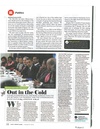
|
2013 may 12
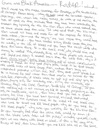
|
2013 may 12
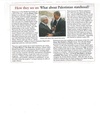
|
2013 may 12

|
2013 may 12

|
More... |
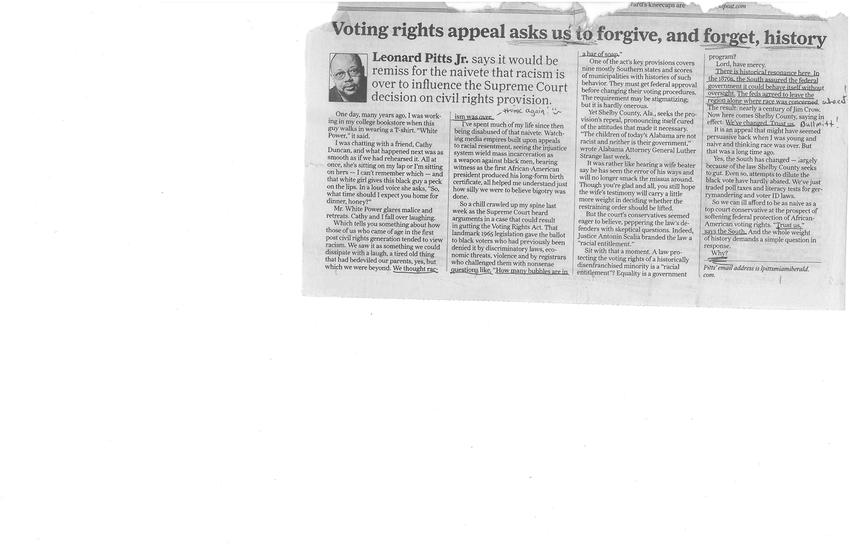
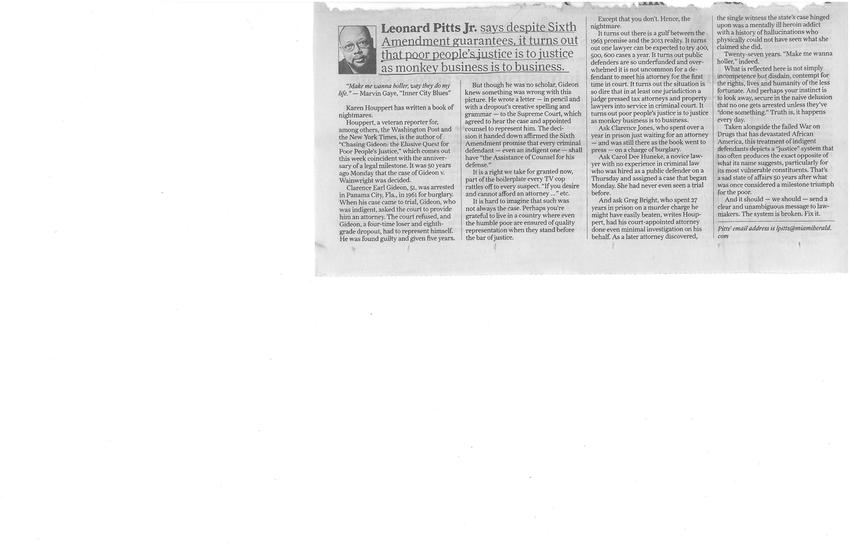

Replies